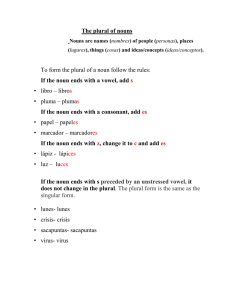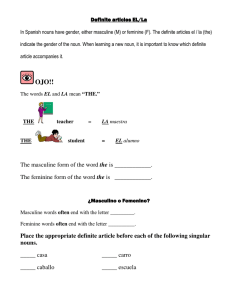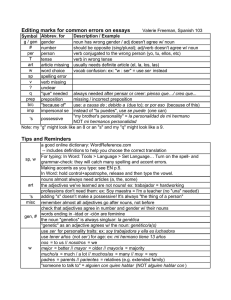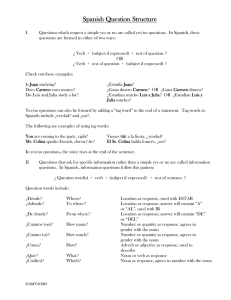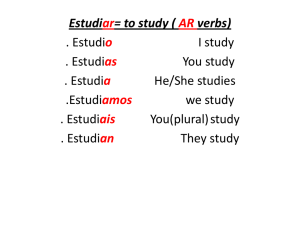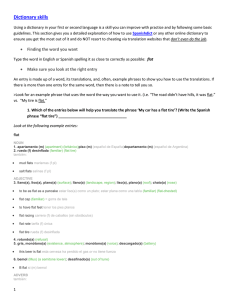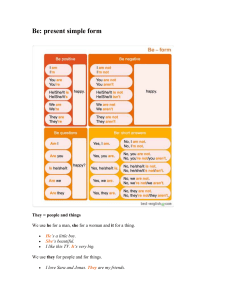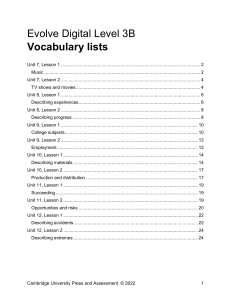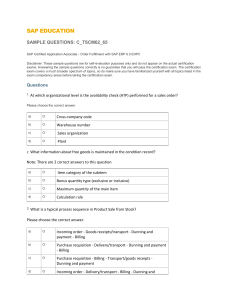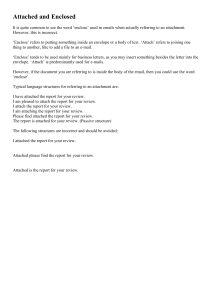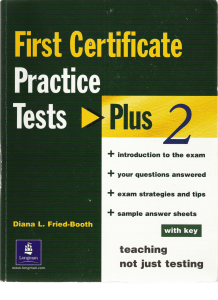1 COMMON MISTAKES MADE WHEN WRITING IN SPANISH
Anuncio
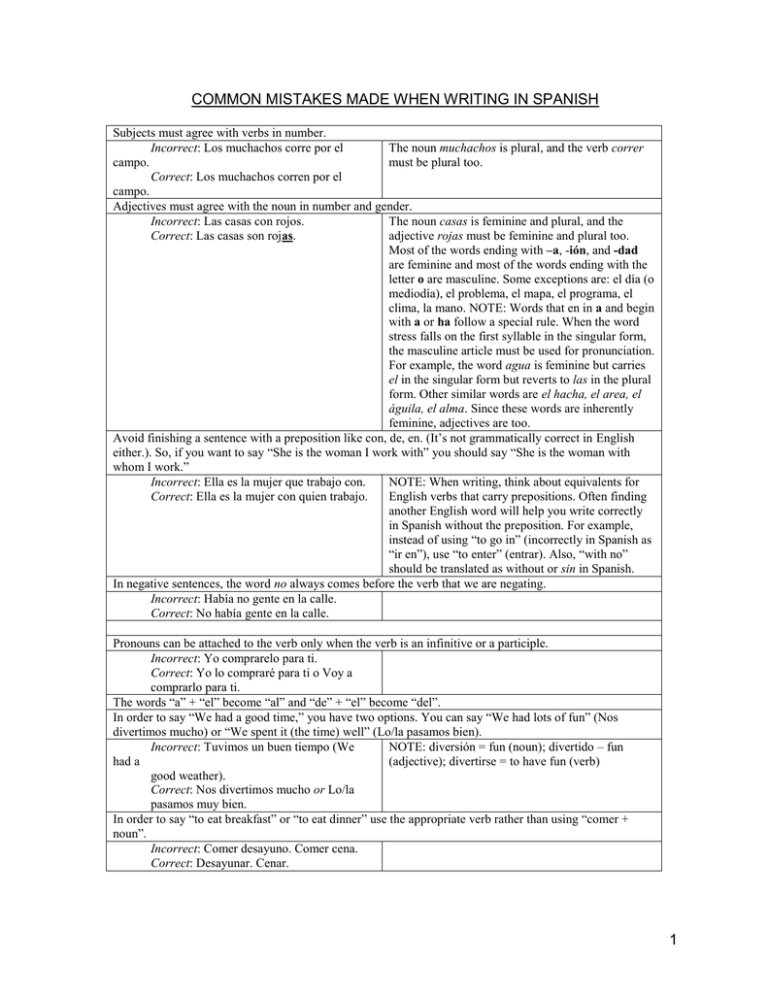
COMMON MISTAKES MADE WHEN WRITING IN SPANISH Subjects must agree with verbs in number. Incorrect: Los muchachos corre por el The noun muchachos is plural, and the verb correr campo. must be plural too. Correct: Los muchachos corren por el campo. Adjectives must agree with the noun in number and gender. Incorrect: Las casas con rojos. The noun casas is feminine and plural, and the Correct: Las casas son rojas. adjective rojas must be feminine and plural too. Most of the words ending with –a, -ión, and -dad are feminine and most of the words ending with the letter o are masculine. Some exceptions are: el día (o mediodía), el problema, el mapa, el programa, el clima, la mano. NOTE: Words that en in a and begin with a or ha follow a special rule. When the word stress falls on the first syllable in the singular form, the masculine article must be used for pronunciation. For example, the word agua is feminine but carries el in the singular form but reverts to las in the plural form. Other similar words are el hacha, el area, el águila, el alma. Since these words are inherently feminine, adjectives are too. Avoid finishing a sentence with a preposition like con, de, en. (It’s not grammatically correct in English either.). So, if you want to say “She is the woman I work with” you should say “She is the woman with whom I work.” Incorrect: Ella es la mujer que trabajo con. NOTE: When writing, think about equivalents for Correct: Ella es la mujer con quien trabajo. English verbs that carry prepositions. Often finding another English word will help you write correctly in Spanish without the preposition. For example, instead of using “to go in” (incorrectly in Spanish as “ir en”), use “to enter” (entrar). Also, “with no” should be translated as without or sin in Spanish. In negative sentences, the word no always comes before the verb that we are negating. Incorrect: Había no gente en la calle. Correct: No había gente en la calle. Pronouns can be attached to the verb only when the verb is an infinitive or a participle. Incorrect: Yo comprarelo para ti. Correct: Yo lo compraré para ti o Voy a comprarlo para ti. The words “a” + “el” become “al” and “de” + “el” become “del”. In order to say “We had a good time,” you have two options. You can say “We had lots of fun” (Nos divertimos mucho) or “We spent it (the time) well” (Lo/la pasamos bien). Incorrect: Tuvimos un buen tiempo (We NOTE: diversión = fun (noun); divertido – fun had a (adjective); divertirse = to have fun (verb) good weather). Correct: Nos divertimos mucho or Lo/la pasamos muy bien. In order to say “to eat breakfast” or “to eat dinner” use the appropriate verb rather than using “comer + noun”. Incorrect: Comer desayuno. Comer cena. Correct: Desayunar. Cenar. 1
